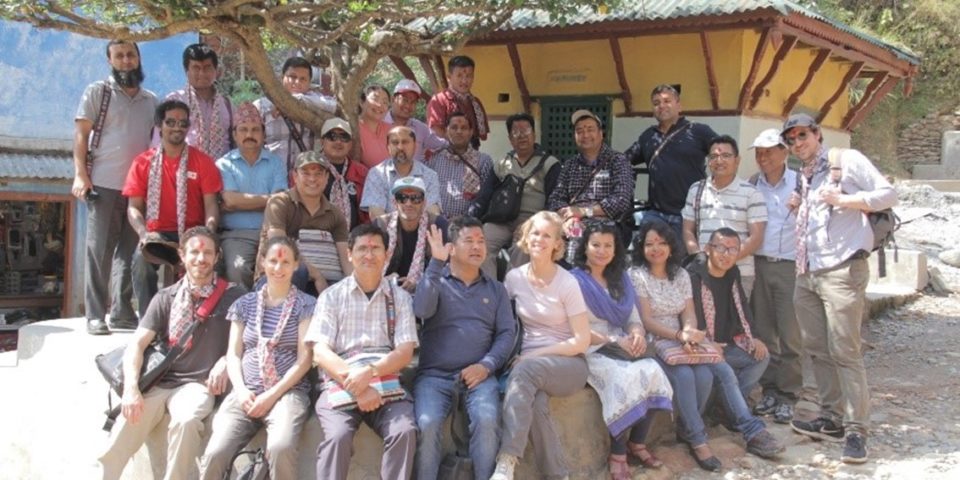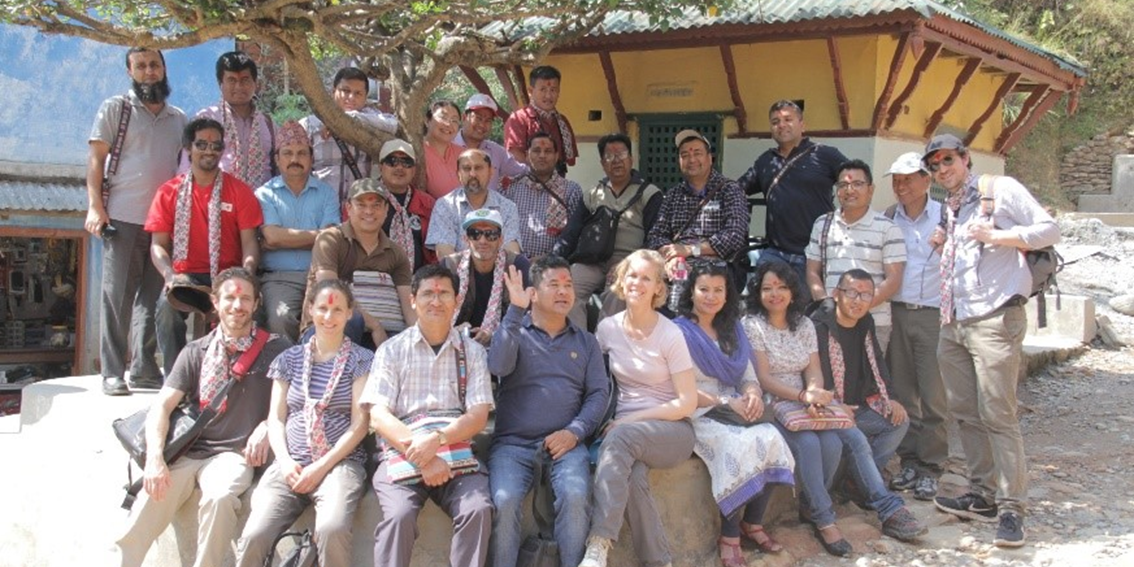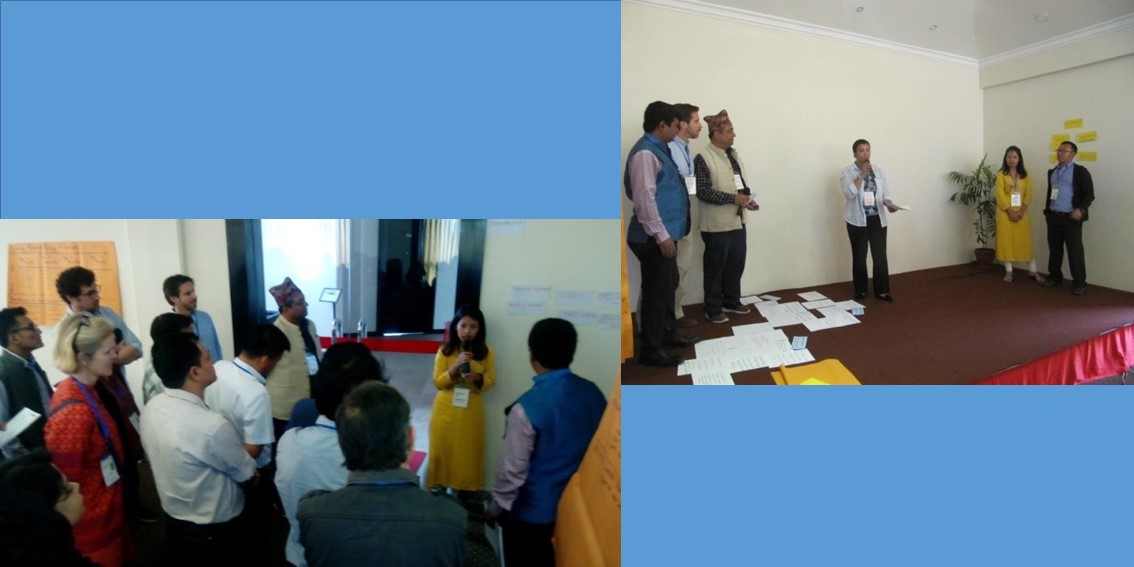Workshop participants coming from Bangladesh, Cambodia, India, Nepal and Switzerland
Day 1 - Opening and getting acquainted with Water Integrity
The Asia Regional workshop has started on 3rd April at Pokhara, Nepal which will continue until 6th April. The main theme of the workshop is "Water Integrity". The objectives of the workshop is to maintain collaboration among all consortium partners organization with knowledge sharing among the different project teams in the WASH and small scale irrigation sector. Furthermore, it is also to main external visibility of the consortium and to keep up exchange and maintain trust and relationship between and among all members. A total of 30 participants from six organizations including resource persons and donor representatives from six countries are participating in the event.
Major highlights of the day…..
- The flash back Swiss Water and Sanitation Consortium phase II was very impressive. It augurs well for the future continuation. The modality and issues are presented.
- Integrity is the key issue rather than resources for sustainability of WASH intervention.
- "Multi-stakeholder Led Total Integrity (MLTI)" approach has been created by the participants to tackle the lack of coordination among policy makers, relevant departments and other sector stakeholders as one selected integrity challenge.
- Integrity is not limited only to WASH sector rather it can be practiced in any thematic area and project.
Day 2 - How are Water Integrity elements transferred into project's practice?
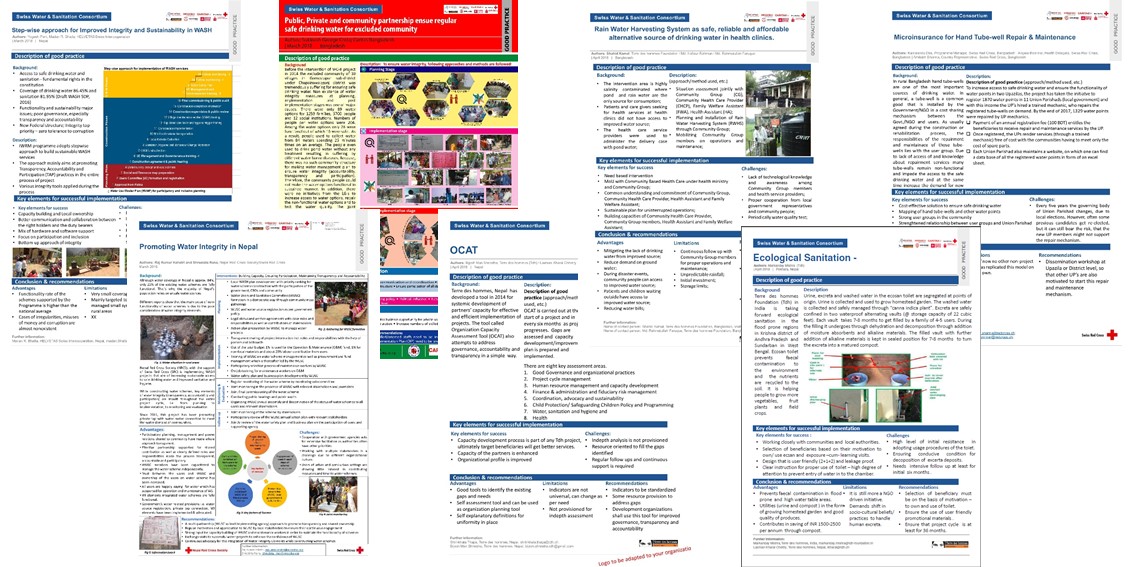
All the participating organizations and project teams had the opportunity to present their good practices regarding water integrity or highlight water integrity aspects within their project implementation process. All posters were discussed in detail and feedback for improvements of good practices provided by the other participants.
Furthermore, all organizations and project teams prepared concrete action plans on how to put water integrity elements in action after returning back home.
Authors: Govinda, Avash, Resham, Laxman, Deepak, Yogesh
Documented Good Practices of Consortium member organizations & partners:
POSTER: Promoting Water Integrity in Nepal and VIDEO: Rawatgaun Water Lifting Project Dang; Presented by Nepal Red Cross Society / Swiss Red Cross
POSTER: Step-wise approach for Improved Integrity and Sustainability in WASH; Presented by Helvetas Swiss Intercooperation Nepal (WARM-P)
POSTER: Promotion of School WASH in the earthquake hit district in Nepal; Presented by Helvetas Swiss Intercooperation Nepal & Caritas Switzerland Nepal
POSTER: Organization Capacacity Assessment Tool (OCAT) ; Presented by Terre des hommes Nepal
POSTER: Ecological Sanitation (Eccosan); Presented by Terre des hommes India
Day 3 - Field visit to Deurali Drinking Water Supply Scheme
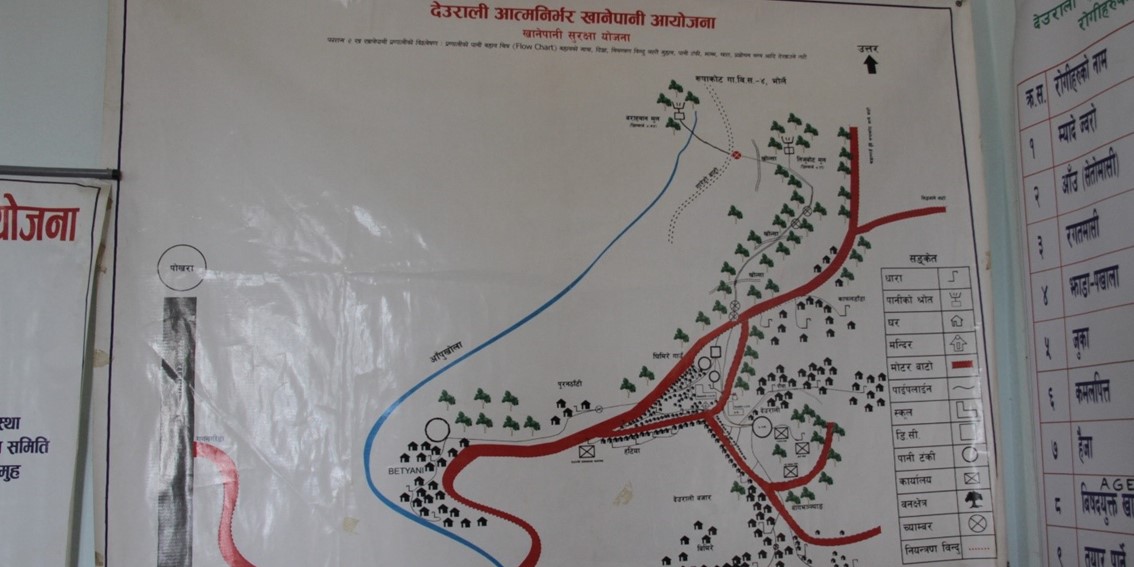
One hour drive from the main city of Pokhara the team reached Deurali which is in Rupa Rural Municipality. The team reached the site to observe a drinking water supply system constructed with support from HELVETAS Swiss Intercooperation 15 years ago.
After arriving at the location, the group first went for a site visit where the water collection tank were placed. Following this, the water users committee led the visiting team to their office. The chairperson of the committee explained the various aspects of the water supply scheme including the history, background, on-going progresses and future plans for extension. While doing so, he also shed light on the various aspects of transparency, accountability, participation and anti-corruption.
Observations
- Technically sound project which is well operated and is a progressive. It has been evolving as required to meet the needs.
- Well-coordinated committee and has been active to reach out to possible available support to upgrade the water supply system as well as initiating community based activities which includes awareness raising on health and sanitation.
- The roles and responsibilities of different community group is well-defined and different committee have performed different tasks. It’s ensured more participation and accountability.
- The committee has been active in sustainable use of the water supply system. They have provisions to train local women in management of trainings. Also, for major repairs they have provision of a dedicated technical person to support.
- Practice of users’ satisfaction survey annually has been a good tool for complaint and response mechanism.
- Users’ committee leadership has performed very well during each of their tenure. Such trend in strong leadership has been one contributing factor to the sustainability of the water supply scheme.
Effect of availability of clean drinking water to other important areas such as improvement in human health, increase in school attendance of girls etc. were well publicized for reference.
Authors: Kamalendu, Kham, Anupama, Bijesh, Shrinkhala, Hemanta

